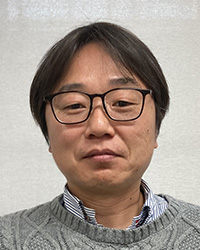B04 “Advancement of Compact Neutron Sources Using Precision Numerical Calculations”

Principle Investigator:
Shinsuke Kawasaki
(Institute for Particle and Nuclear Studies, High Energy Accelerator Research Organization (KEK), Associate Professor)
Neutron beams, due to their high penetrating power, enable non-destructive inspection of internal structures. By applying few-body quantum mechanical calculations to the development of the RIKEN Accelerator-driven Neutron Source (RANS), we aim to promote the advancement of compact neutron source systems for on-site industrial applications, as well as portable neutron sources for the maintenance and disaster prevention of infrastructure such as bridges.
Compact neutron sources generate neutrons by irradiating 7Li or 9Be targets with proton beams. In this study, in collaboration with Group A01, we apply the Gaussian Expansion Method (GEM) to describe the neutron production reaction by considering all degrees of freedom of the total system consisting of the incident particle and the target nucleus. The theoretical calculations will be validated by comparing the results with neutron production data obtained from RANS.
Additionally, our research group conducts high-precision measurements of neutron scattering lengths using a neutron interferometer. A neutron interferometer splits a neutron wave into two paths and recombines them to detect the phase difference caused by interactions along the paths. By utilizing a multilayer neutron interferometer newly developed at the cold neutron beamline of J-PARC MLF, we will obtain high-precision neutron scattering length data to further validate the theoretical calculations.
